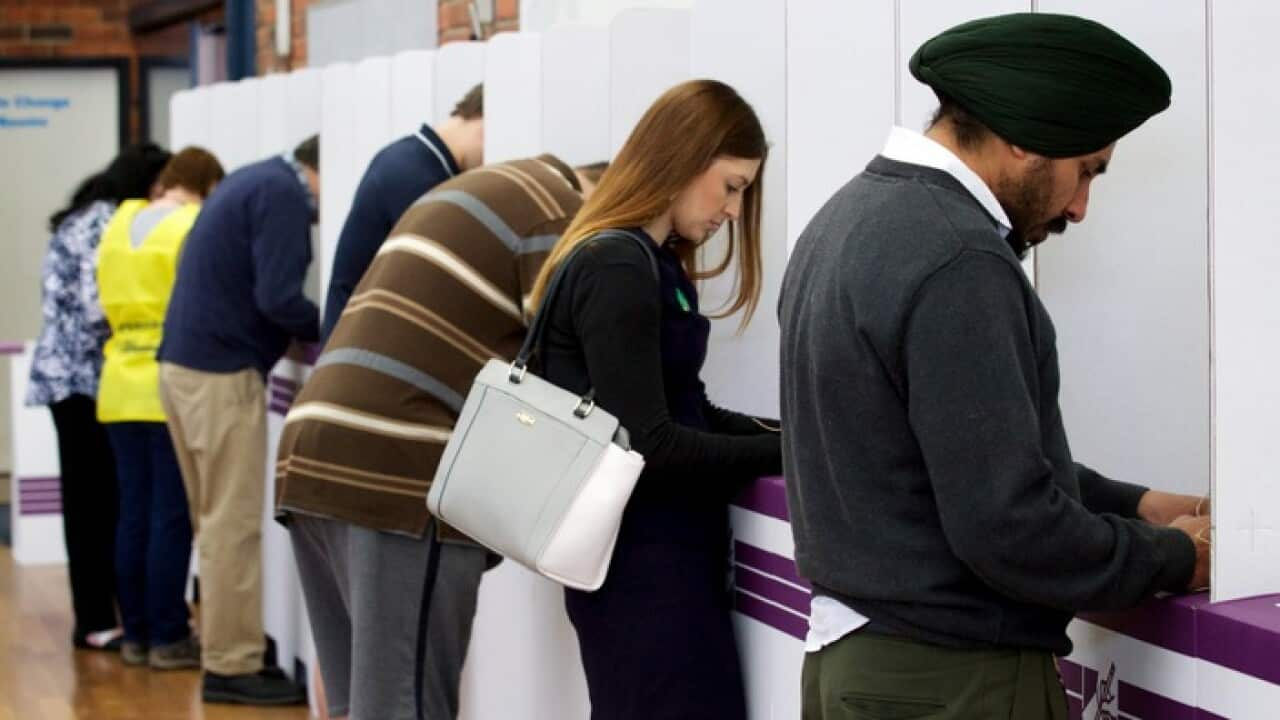As Australia heads to the polls on Saturday, there are growing calls for non-citizens and permanent residents to be allowed on the electoral roll.
Election analyst at Melbourne University, Heath Pickering, believes permanent residents should be given the right to vote because they share many other rights with citizens.
"I think it's perfectly reasonable to allow permanent residents to vote in national elections," he said.
"They are members of the community, they are contributing, they are participating and they do want to live here permanently."
The official figures highlight just how many Australians over 18 will be missing from Saturday's vote.
According to the Electoral Commission, there are more than 15.4 million electors enrolled for the election.
Related reading

Vote 2016: Battle for multicultural votes heating up
That's 94 per cent of the almost 16.5 million eligible.
But, that doesn't include the scores of permanent residents who aren't citizens.
Mr Pickering said it's difficult to gauge from official figures just how many people will miss out.
"There are estimates of at least a couple of a million, including a quarter of a million New Zealanders who live permanently in Australia but are not able to vote on Saturday," he said.
There has long been anger among Kiwis at the difficulty they face obtaining Australian citizenship.
For those from nations like India and Germany, acquiring an Australian passport and getting the vote can also pose a dilemma because it most often means they're forced to renounce the citizenship of their homeland.
That's not an issue for those coming from countries such as Greece or Italy, who are allowed to hold dual nationalities.
Hailing from a country that prides itself on being the home of democracy, Greek Australians are looking forward to having their say on Saturday.
John Flinos is one of them, and even though he hasn't been overly moved by the past eight weeks of electioneering, he's aware of the importance of the right to vote.
"It's been a boring campaign because there haven't been too many big issues," he said.
"Australians have had it too good for so long so I think people just say 'she'll be all right, mate."
But not all migrants like Mr Flinos will have the chance to take part in the democratic process of their adopted homeland.
Indian-born broadcaster Shamsher Kainth is used to the vibrant colour and movement that marks election campaigns in the country of his origin.
But while he's now an Australian resident, he's yet to qualify for citizenship and therefore isn't entitled to vote here.
Related reading

Turnbull outlines priorities ahead of vote
"I hadn't really thought about it but now that I am here permanently and I have decided to call Australia home there is a feeling in the back of my head that I am being left out," he said.
Mr Kainth doesn't believe he should still be considered a foreigner.
"People respect the procedures, the way it is, but I am sure there will be many people out there who would love to participate in the process if they are given the chance."
How do Australia's voting restrictions compare to other countries?
In the 1970s, New Zealand - one of our closest neighbours - granted permanent residents the vote in national polls.
In the US, non-citizen voting was widespread in the first 150 years of its history.
But since 1996, national laws have barred them from the ballot box in federal elections.
In Canada, only citizens are permitted to vote in national elections.
But, in the UK, Irish citizens and some citizens of Commonwealth countries are allowed to exercise their democratic right in the "mother country" because they're historically not regarded as foreigners.


